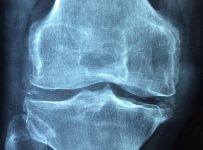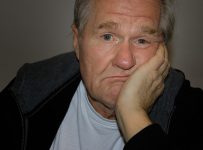By most accounts, it seems normal to have at least some hearing loss by the time you reach senior status. One out of three people ages 65 to 74 suffer from hearing loss. By age 75 and up, this number increases to one out of every two people.
But researchers aren’t exactly sure why hearing loss increases with age. Part of the reason could be our ears are just exposed to more noise during those additional ten years or we have just naturally lost more of the tiny hairs associated with hearing.
How the Ear Works
To understand the cause of hearing loss, one has to first understand the basics of hearing. Within the inner ear is a structure containing thousands of tiny hair cells. As these cells vibrate, they generate and send an electrical pulse through the cochlear nerve and to the cerebral cortex in the brain. Here the brain interprets the signals into words or sounds and the loudness of each. The electrical signal generated is dependent on which cells vibrated, the intensity of the vibrations and the number of hairs.
When exposed to sharp loud noises, the vibrations hitting the tiny hairs can literally snap them off. And unlike other types of hair, they do not regenerate themselves; once gone, they are gone forever.
The fewer hairs you have to send electrical signals to the brain, the less interpretation the brain can make and you end up not recognizing many of the words or sounds that you hear.
So to save as much of your hearing as possible, limit the duration and intensity of loud noise.
Protecting Your Hearing
Of course one way to protect your hearing is to wear hearing protection, such as ear plugs or specially designed ear muffs anytime you are in a noisy environment classified as noise over 85db. Avoiding high noise environment in the first place will also help preserve your hearing.
Because smokers tend to lose more of their hearing than non-smokers, quitting smoking will help preserve your hearing too.
Medical
Certain medical conditions beyond your control can take their toll on hearing. Meniere’s disease, ear infections, head trauma and non-cancerous tumors all can affect your ability to hear.
And finally some medications can impair hearing. Right now over 200 drugs are listed as having this side effect including, aspirin, antibiotics and drugs used to treat erectile dysfunction.
Being able to hear is a wonderful thing that many take for granted. General aging aside, and you can’t do much about that, doing the things suggested in this article will help your preserve your hearing well into your Golden Years.














